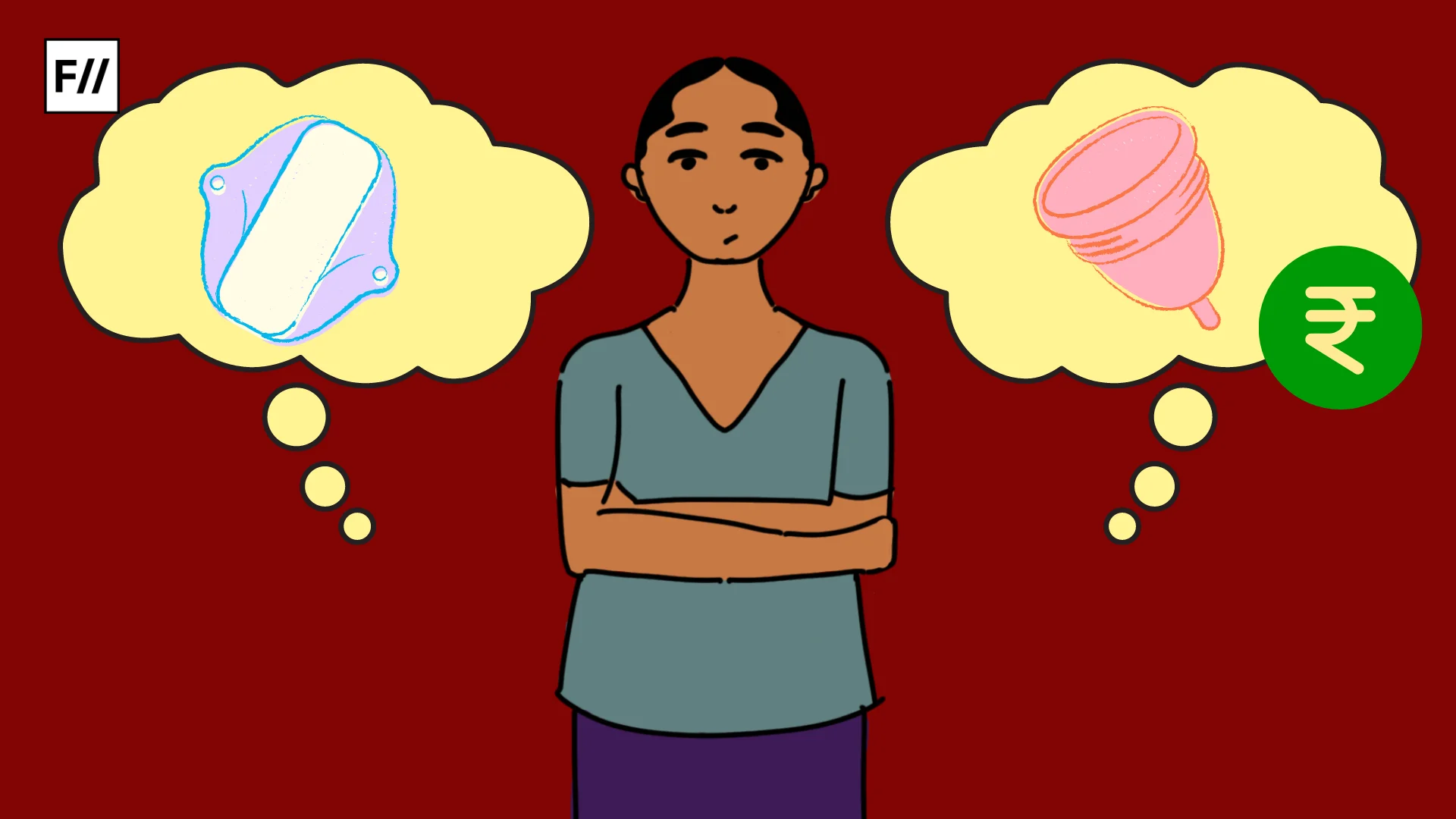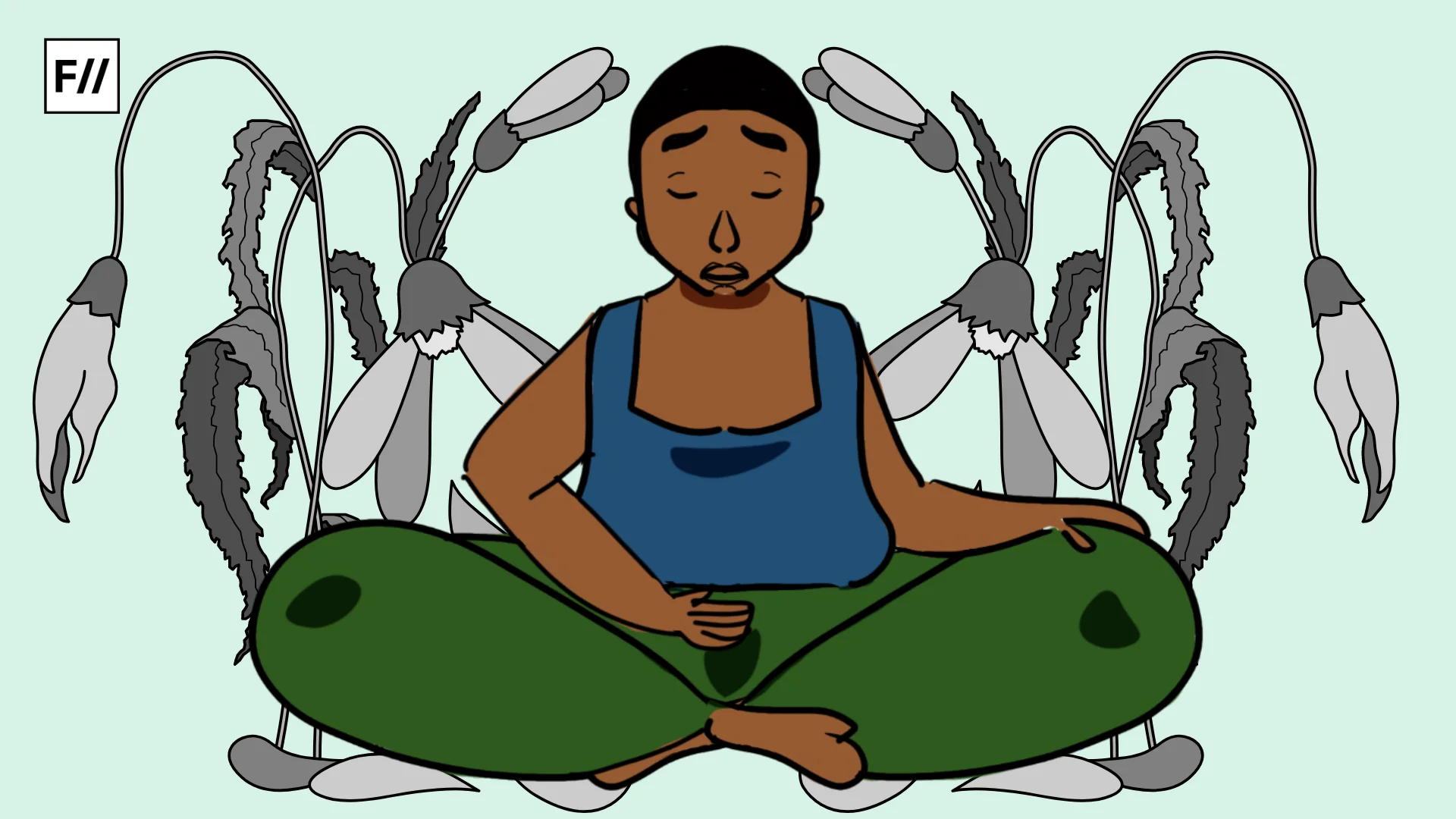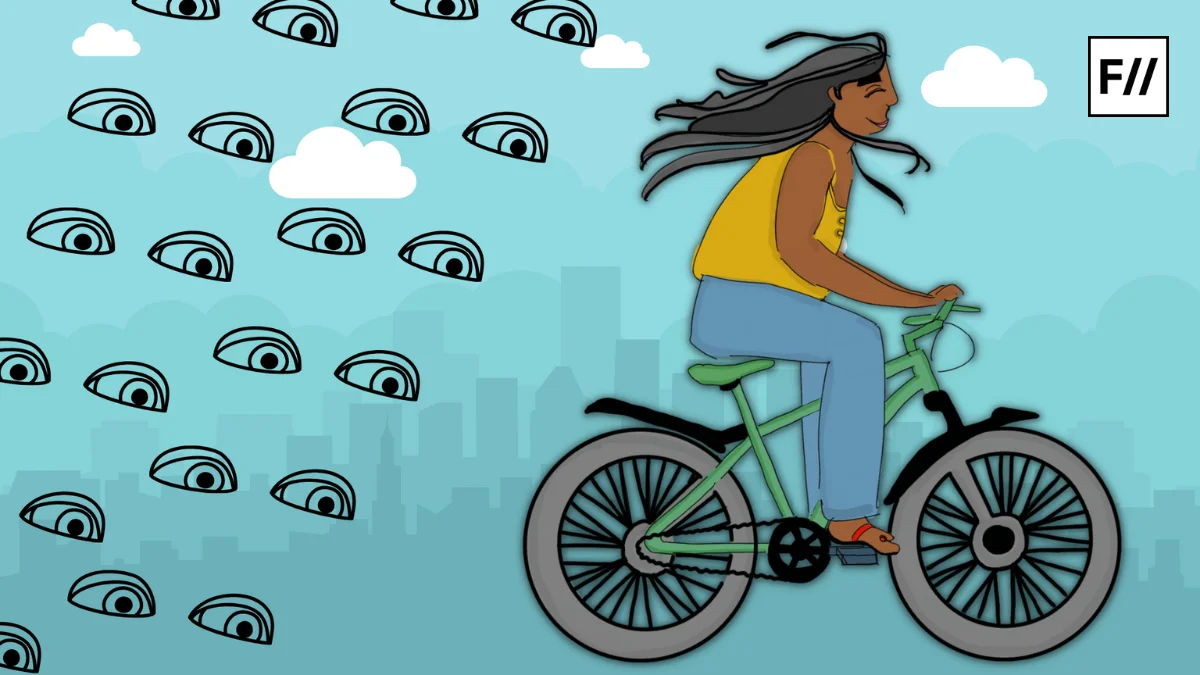Srinagar: On a sunny morning in Kashmir, 23-year-old Saima sat quietly on a crowded bus travelling from Baramulla to Srinagar. At exactly 8 AM, her smartwatch vibrated, flashing a reminder: her menstrual cycle was three days late. It was not unusual anymore; it had been happening for several months but each delayed notification unsettled her.
As she stared at the glowing screen, Saima searched her phone for reasons behind missed periods: stress, hormonal imbalances, diet, or something more serious. “For the past eight months, I have battled anxiety, depression, weight gain, and sudden cramps,” she said. “I didn’t have the courage to tell my family or consult a doctor. My smartwatch became my only silent companion.”
Saima is not alone. Across Kashmir, a growing number of young women are silently grappling with Polycystic Ovarian Disease (PCOD) and Polycystic Ovary Syndrome (PCOS). Despite being among the most common endocrinological disorders in women of reproductive age, they remain under-researched and poorly understood in India.
A growing and alarming trend
Reports from the National Institute of Health stated that from 2024 around 17.4% of college-going women in India’s NCR region between the ages of 18–25 suffer from PCOD or PCOS, higher than earlier recorded figures. In urban areas, the condition is linked to sedentary lifestyles, junk food consumption, stress, and pollution. In rural areas, the lack of awareness and stigma around menstruation worsens the situation.

Symptoms vary but often include irregular periods, painful cramps, facial hair growth, sudden weight gain, excessive bleeding, acne, and infertility risks.
According to the reports of Think Global Health, nearly one in five Indian women is affected. Yet, conversations around reproductive health remain muted, especially in conservative societies like Kashmir, where menstruation itself is seen as shameful.
PCOD, stigma and silence
For Mehak, a 22-year-old student from Srinagar, PCOD has been a thief of joy. “It took away my peace, energy, and confidence. I don’t feel comfortable in my favourite clothes anymore. Some mornings I wake up exhausted and cry without reason, and no one understands what I am going through.”
According to the reports of Think Global Health, nearly one in five Indian women is affected. Yet, conversations around reproductive health remain muted, especially in conservative societies like Kashmir, where menstruation itself is seen as shameful.
Her mother, an illiterate homemaker, was shocked when a doctor diagnosed Mehak. “She told me never to share it with anyone. She feared it would affect marriage proposals,” Mehak recalled.
This fear is widespread. In rural India, reproductive disorders are often linked to infertility, a taboo that can result in rejection from potential partners, marital breakdowns, or even divorce. “Society treats us as abnormal,” said another young woman. “A girl with PCOD is seen as unfit, while a boy who smokes or drinks still gets respect.”
Marriage as a ‘cure’
Nineteen-year-old Aira has lived with PCOD since her mid-teens. Initially, she was bewildered by irregular cycles, facial hair, and severe pain. Too shy to talk to her mother, she suffered in silence for years. When she finally confided in her family, her mother rushed her to a doctor. The prescription shocked her: marry her.
“The doctor told my mother that marriage was the only solution because PCOD had ruined my reproductive capabilities,” Aira said bitterly. Instead of receiving medical care or lifestyle guidance, she was told her worth was tied to her ability to conceive.
Such advice reflects a troubling trend in India, where reproductive health is medicalised through the lens of marriage rather than seen as a critical aspect of women’s well-being.
Beyond PCOD, menstruation itself is a battlefield for Kashmiri girls. Iqra, a 21-year-old college student, described how buying sanitary napkins feels like a covert operation. “We hide pads from male shopkeepers as if carrying an illegal weapon,” she said.
According to many reports, 50% of girls in early menstruation stages lack proper knowledge about it. In rural Kashmir, limited access to hygiene products and the absence of menstrual education leave girls depressed, embarrassed, and uninformed. In such a climate, expecting them to discuss PCOD or PCOS openly is unrealistic.
“The doctor told my mother that marriage was the only solution because PCOD had ruined my reproductive capabilities,” Aira said bitterly. Instead of receiving medical care or lifestyle guidance, she was told her worth was tied to her ability to conceive.
While society remains reluctant to acknowledge women’s reproductive struggles, technology is quietly filling the gap. Many Kashmiri girls now use smartwatches, period-tracking apps, and smartphones to monitor cycles.
“Almost 70% of my friends use reminders on their phones or watches,” said Saima. “Technology keeps us aware. At least we know when something is wrong.”
Apps also provide educational resources, connecting girls to information they may not receive at home or school. Some use online consultations to bypass social barriers of visiting male doctors in person. For many, this digital support is the first step toward seeking medical care.
Yet, technology has its limits. It cannot replace professional treatment or dismantle social stigma. Without awareness and community support, gadgets remain a private coping mechanism rather than a societal solution.
Medical perspective on PCOD
Doctors emphasise that PCOD and PCOS are lifestyle-related disorders, not moral failings. “They are curable with proper awareness, medication, and lifestyle changes,” said a senior gynaecologist in Srinagar. “But awareness is crucial. Girls must be encouraged to speak openly and avoid self-medication.”
Doctors emphasise that PCOD and PCOS are lifestyle-related disorders, not moral failings. “They are curable with proper awareness, medication, and lifestyle changes,” said a senior gynaecologist in Srinagar. “But awareness is crucial. Girls must be encouraged to speak openly and avoid self-medication.”
Dr Nusrat, a gynaecologist at Bandipora District Hospital, said the issue is widespread but shrouded in silence. “It is most common among teenagers to women in their early 30s. But because women are taught to see reproductive issues as private, they hesitate to discuss them, especially with male doctors. Fear of infertility further silences them.”
Health experts suggest practical steps to manage the condition:
• Balanced diet: Incorporating fruits, vegetables, whole grains, and proteins.
• Exercise: At least 30–40 minutes daily to regulate weight and hormones.
• Stress reduction: Meditation, yoga, and adequate sleep.
• Hydration: Drinking 2–3 litres of water daily.
• Limiting junk food and late-night screen time.
She stressed the need for awareness campaigns. “We must use schools, colleges, and workplaces to spread knowledge. Social media can also play a huge role. Girls must understand that PCOD is manageable through diet, exercise, hydration, and reduced stress. But if symptoms appear, they must consult a specialist—not rely on myths or quick fixes.”
(Disclaimer: This article is for awareness purposes only and is not a substitute for professional medical advice. Consult a healthcare provider for diagnosis and treatment.)
About the author(s)
Seerat-Un-Nisa is a freelance journalist from Kashmir who reports on rural issues, focusing on education, the environment, climate change, and women’s empowerment.




